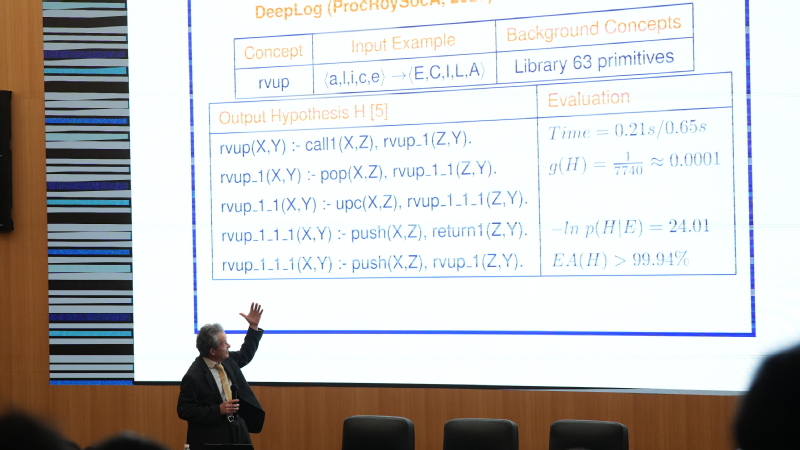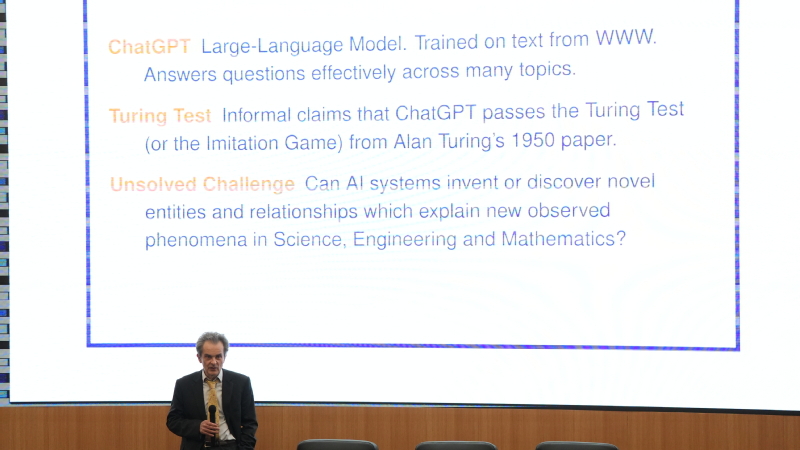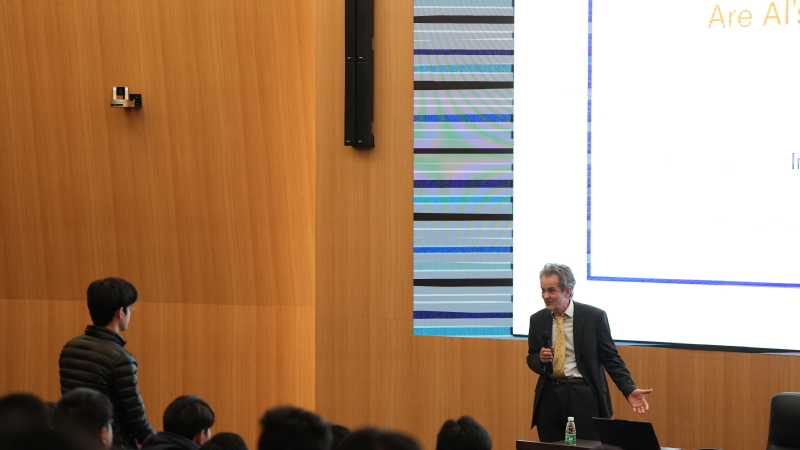On the evening of November 29th at 19:30, our distinguished professor, Academician Stephen H. Muggleton, gave an academic lecture titled Are AI's key challenges solved?.
Abstract:
Generative Pre-trained Transformer models (GPT) are a form of Large-Language model which has recently attracted wide-scale interest based on general open-ended query-answering. In this talk I will look at remaining challenges for the field of Artificial Intelligence. In particular, I will argue that although widely available systems, such as ChatGPT, partially address Alan Turing's Imitation Game [1950 paper in the Journal Mind] (now called the Turing Test) they fall short of the Supercriticality Challenge which Turing provided within the same paper. While Turing's paper initiated modern discussions on these topics, it was John McCarthy [1956] who named the field Artificial Intelligence. In a 2006 keynote speech at the Inductive Logic Programming conference, McCarthy introduced a Discovery Challenge which is closely related to Turing's Supercriticality. I will exemplify a range of human discoveries in Science, Engineering and Mathematics, and argue that neither Turing's nor McCarthy's challenges are addressed by existing GPT techniques. By contrast, to enable progress on Discovery Systems, further work is required on development of methods for identifying and explaining rare phenomena. Some initial work and directions for further studies will be described.
Reported by:
Stephen H. Muggleton, male, born in December 1959, is a professor and doctoral supervisor. He is a distinguished professor at the School of Intelligent Science and Technology at Nanjing University, a member of the Royal Academy of Engineering in the UK, Chairman of Machine Learning Research at the Royal Academy of Engineering in the UK, Director of the Computational Bioinformatics Laboratory at the Department of Computer Science at Imperial College of Technology, Director of the Syngenta Center for Innovation in Systems Biology, member of the Management Committee of the Institute of Systems and Synthetic Biology at Imperial College of Technology, and a member of the Council of the International Society for Artificial Intelligence (MLS). He is mainly engaged in research on machine learning and artificial intelligence, and is one of the leading figures in semiotic artificial intelligence and machine learning. He has pioneered the field of inductive logic programming and successfully applied machine learning. Pioneering achievements in systems and synthetic biology, published in Nature More than 200 papers have been published in top international journals and conferences. According to Google Academic statistics, the work has been cited more than 19000 times, with an H-index of 73. It has been selected as a Fellow of the International Association for Artificial Intelligence (AAAI), the British Computer Society (BCS), the International Society for Engineering Technology (ET), the Royal Society of Biology (RSB), and the European Society for Artificial Intelligence (EurAl).





